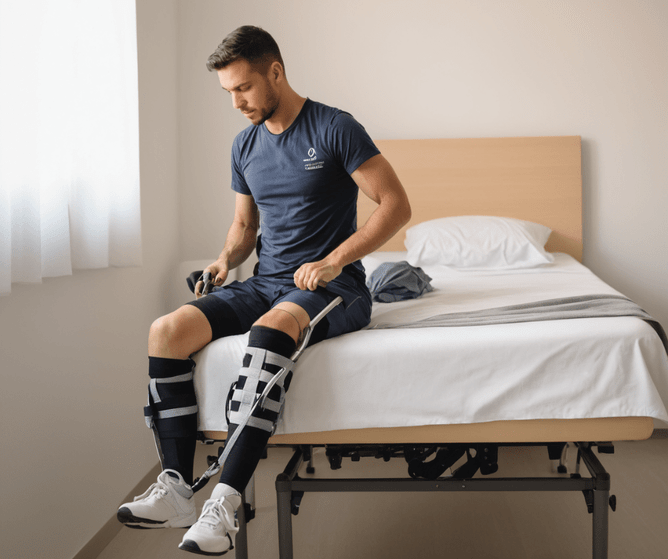Injury can change the way we move through life, sometimes overnight. Tasks that once felt automatic, like dressing, cooking, or even walking to the letterbox, might suddenly feel overwhelming. It’s natural to feel frustrated or unsure during this time, but with the right support, mindset, and tools, it’s possible to adapt and rebuild a new version of daily life, one that works for where you are now.
At Holistic Strength, we support individuals every day in adapting to life after injury through services such as Exercise Physiology, Occupational Therapy, or Allied Health Assistance. Whether you're recovering from a fall, surgery, or a chronic condition, small adjustments can make a big impact.
Start Small: Break Tasks into Steps
One of the most effective ways to approach daily challenges is by breaking tasks into smaller, manageable parts. For instance, if getting dressed is tricky due to reduced mobility or pain, try sitting down and laying out your clothes within easy reach. Slip-on shoes, elastic waistbands, and adaptive tools can all make a difference.
Planning ahead can also help conserve energy. Gather what you need before you begin a task—whether that’s getting your toiletries before a shower or lining up ingredients before cooking. These small adjustments can reduce strain and give you a greater sense of control.
Move Safely and Stay Active
It’s important to stay active during recovery, even if your usual routine needs modifying. Exercise Physiology can play a key role here. Accredited Exercise Physiologists design safe and tailored programs that help you rebuild strength, improve balance, and manage pain, all while respecting the pace your body needs.
If you were previously into high-impact sports or gym sessions, you might need to shift towards gentler movement like walking, stretching, or pool-based therapy. The key is to keep moving, even if it looks different to what you’re used to. Many of our clients find that through Exercise Physiology, they not only regain strength, but also confidence in their body’s abilities again.
Make Mealtimes Easier
Meal preparation can become one of the trickiest parts of the day after an injury, especially if you’re dealing with fatigue or restricted movement. But you don’t have to give it up entirely. Using lightweight, easy-grip utensils, cooking in batches when you feel more energised, and simplifying your recipes are all great starting points.
Consider meals that only use a few ingredients and minimal cooking time—like slow cooker meals or stir-fries. Not only do they save effort, but they’re also nutritious and satisfying. And don’t be afraid to ask for a hand or share meals with loved ones. Cooking together or simply sharing dinner can lift your mood and reduce feelings of isolation during recovery.
Returning to Work Gradually
Heading back to work after an injury can stir up a mix of emotions—nervousness, uncertainty, or even pressure to perform like you used to. But remember, recovery takes time, and it’s okay to go at your own pace. Speak with your employer about modifications that may help, such as adjusted hours, seated or standing desk options, or work-from-home flexibility.
Occupational Therapists and Exercise Physiologists often work with clients on return-to-work planning, helping identify barriers and support options. Whether you’re easing back into a part-time role or transitioning to a new type of work, your allied health team can guide you through it.
Self-Care Is Part of Recovery
Healing isn't just physical—it’s emotional and mental too. Prioritising self-care is essential. Whether it’s journaling your progress, enjoying a cuppa with a friend, or engaging in light mindfulness or breathing exercises, these moments matter.
If you're working with a Speech Pathologist, Physiotherapist, or Dietitian at Holistic Strength, don’t hesitate to ask for guidance on supporting your mental wellbeing too. Every team member is here to help you feel stronger, not just in body, but in spirit.
Conclusion
Adapting after an injury doesn’t mean giving up the life you love—it just means learning new ways to live it. With the support of allied health professionals and a bit of patience, you can reclaim your routines and feel more like yourself again.
Want to learn how our Exercise Physiology programs can support your recovery? Get in touch with Holistic Strength today.
